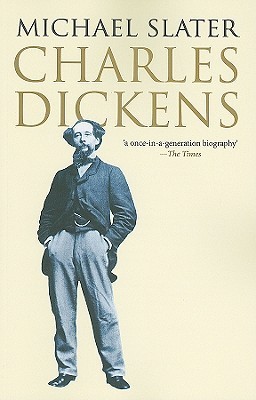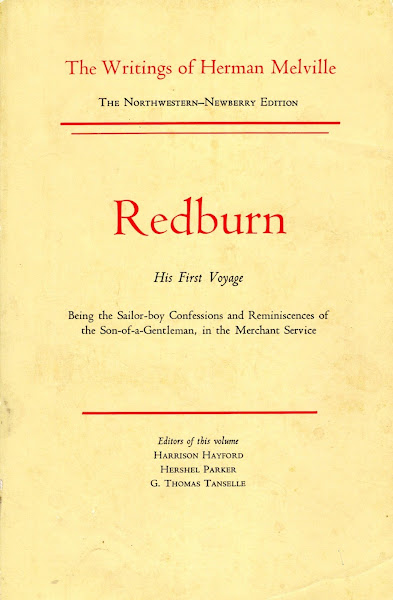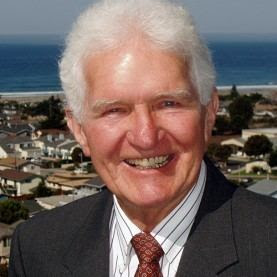I couldn't quite bring myself to go and see Alex Garland's much-hyped action film Civil War when it first hit the cinemas last year. It felt like an unnecessary incitement to violence at the time, pre-US election, when it still seemed possible - likely, even - that reason would prevail.
Now, a year later, having finally watched the movie, it's hard to see what what all the fuss was about. The Trump-like president, played by Nick Offerman, who's somehow hijacked his way into a third term, is opposed by a helicopter and tank-toting band of uniformed secessionists who appear to have almost infinite resources at their command.
 Civil War core cast:
Civil War core cast:[l-to-r: Kirsten Dunst, Wagner Moura, Stephen McKinley Henderson, Cailee Spaeny]
No, the morality of the plot is all to do with the coarsening effects of passively witnessing - and, in some cases, getting off on - other people's violent acts, in the guise of objective reportage. Kirsten Dunst (who plays a kind of updated version of World War II photojournalist Lee Miller) has become severely burnt out in the process.
She and her band of misfit reporters all learn a lot about themselves, and each other, in their perilous trek across war-torn America - replete with tortured looters on gibbets and corpses being trucked into mass graves - but unfortunately such self-knowledge seems to equate with being too slow to get out of the way of bullets in this movie, so most of the information ends up getting lost in transmission.
The main reason I decided to watch the film at all was because I'd just finished reading the book above, Tony Horwitz's 25-year-old exposé of the sheer extent of sympathy with the so-called "Lost Cause" of the Confederacy - not only in the Southern States, but across the United States as a whole.
Horwitz tries to stress the humorous side of this obsession, as in his account of a five-man reenactment of Pickett's charge by a squad of hardcore neo-rebels:
A lobster-red woman in a halter top matched Rob stride for stride, carefully studying his uniform.It all seems considerably less quaint and amusing now, after the 2021 Capitol riot and the exponential growth of such extremist groups as the Proud Boys and other far-right militants.
"What are you guys?" she asked.
"Confederates," Rob mumbled.
"Ferrets?"
"Confederates," Rob repeated.
"Oh," she said, looking underwhelmed.- Confederates in the Attic: 278.
It's not that unusual for me to read several books simultaneously. Sometimes I move through them at about the same rate; other times one takes over altogether. It can be quite a long drawn out process to get to the end of all of them.
Alongside Confederates in the Attic, I found myself rereading Edmund Wilson's rather ponderous set of "Studies in the Literature of the Civil War", Patriotic Gore. The two books have a lot more in common than simply treating the same subject in different ways.
Tony Horwitz won the Pulitzer Prize for national reporting in 1995, so he's no light-weight, despite the rather garish design and packaging of his book. But Edmund Wilson is certainly far more of a name to conjure with: one of America's most celebrated literary critics, three-time finalist in the National Book Awards (the second time for Patriotic Gore), he remains a distinctly impressive figure.
However, his dismissive, off-the-cuff verdicts on such present-day luminaries as H. P. Lovecraft ("Tales of the Marvellous and the Ridiculous," 1945) and J. R. R. Tolkien ("Oo, Those Awful Orcs!," 1956) have become so notorious that they now threaten to overshadow his more substantive achievements.
Actually, Wilson's greatest legacy may well turn out to be the idea behind the Library of America (1979- ), a uniform set of classic works from the United States, based loosely on the French Bibliothèque de la Pléiade (1931- ). It came to fruition only after his death, largely through the efforts of Jason Epstein and others, but it wasn't until a quarter of a century later that Wilson himself finally joined its ranks with a double-volume selection from his literary essays and reviews.
The two books, Wilson's and Horwitz's, were published exactly 35 years apart, the first during the intense period of self-examination triggered by the Civil War centennial in the early 1960s, the second in the late Clinton era, pre-9/11, when the much-touted Pax Americana could still be seen as a valid concept.
In between the two came Shelby Foote.
Or rather, in the early 1990s, Ken Burns's phenomenally successful 9-part PBS documentary series The Civil War (1990) had the inadvertent effect of propelling a hitherto largely unknown Southern writer to international stardom.
That's the other book I've been rereading recently: Foote's immense narrative history of the civil war - a labour of love which took him more than twenty years to complete. I've already written a couple of posts on this subject - one in the larger context of the literature of the Civil War, the other as part of a piece on the alleged "amateurism" of narrative historians in general.
In the first of these pieces, written over a decade ago, I was content to echo Foote's own assessment of his authorial stance:
Foote corrects the Union bias of earlier historians: an unabashed Southerner, he achieves a kind of imaginative empathy with the principal protagonists in the drama which is unlikely ever to be repeated or surpassed. This is certainly the best history of the war to date. It is a military history above all, though - if you want political insights, then Foote still needs to be supplemented by various others.In the second, composed more recently, in 2023, I'd altered my view somewhat:
Since the appearance of Ken Burn's ... Civil War ... which made Shelby Foote a star, his epic narrative history of the war has somewhat fallen from grace.
It's true that he does consciously go out of his way to present a more Southern view of the so-called "irrepressible conflict" than such Northern historians as Bruce Catton and Allan Nevins in their own multi-volume works. [Moreover], his view that the two undoubted geniuses produced by the civil war were Abraham Lincoln and Nathan Bedford Forrest is no longer seen as an amusing paradox, but rather a clear statement of "Lost Cause" belief.
Certainly he was a man of his own time and place. Stuart Chapman's critical biography of Foote reveals the complexity of his upbringing and self-positioning in the America of Jim Crow and the early Civil Rights movement.
For myself, I find it far too facile to arrange the writers and thinkers of the past into convenient columns of "right-thinking" and "aberrant". It's perhaps going too far to say that tout comprendre, c'est tout pardonner, but being a liberal Southerner in the mid-twentieth century was not an easy row to hoe.
The fact that he's been criticised roundly by both sides for his views is surely some kind of testimony to his even-handedness? He's no apologist for racism by any means: no hagiographer of Southern rights, unlike General Lee's biographer Douglas Southall Freeman.
It was rather a salutary experience to read Stuart Chapman's biography of Foote. The fact that it appeared two years before the writer's death may have inhibited Chapman somewhat in his analysis of the contradictions between Foote's warring ideological positions: on the one hand, sympathy for the South first and last; on the other, recognition of the futility of their continued refusal to recognise civil rights. Nevertheless, there was still much there to ponder.
Anove all, Chapman highlights Foote's passionate admiration for the dashing bravado of Nathan Bedford Forrest, slave-trader, military wizard, and first Grand Wizard of the Ku Klux Klan, contrasting it with the historian's slightly grudging respect for the genius of the Union hero, Abraham Lincoln.
I had thought that the two opposing principles were held in some kind of equilibrium - albeit precarious - in Foote's actual history of the war, but I now think I was wrong. What I detect there now is a resolute denial of the evidence for virtually any Southern atrocities (the Fort Pillow massacre, the appalling conditions at Andersonville prison), and a strange method of attributing victory to the side reporting the fewest overall casualties, regardless of the strategic consequences of such "triumphs". Antietam and Gettysburg become, for him, near-Southern successes rather than Union victories.
I can now see what his despised "professional historians" were complaining about when they criticised Foote for his uncritical use of a single, often unreliable, source when discussing complex issues and events. His failure to provide the complete set of references he'd earlier promised for the end of his third volume also begins to look a little suspicious in hindsight. Essentially he used the information which best suited his thesis, even when it came from dubious "Lost Cause" apologias.
In this respect, the chapter "At the Foote of the Master" in Horwitz's Confederates in the Attic makes even more interesting reading today than when it was first written. Rather than any kind of reconciliation with Yankeedom, it's Foote's fierce Southern nationalism which comes out most strongly in Horwitz's interview:
His great-grandfather [Colonel Hezekiah William Foote ... who owned five plantations and over one hundred slaves] had opposed secession but fought without hesitation for the South. "Just as I would have," Foote said. "I'd be with my people, right or wrong. If I was against slavery, I'd still be with the South. I'm a man, my society needs me, here I am. The difference between North and South in the war is that there was no stigma attached to the Northern man who paid two hundred dollars to not go to war, or who hired a German replacement. In the South you could have done that, but no one would. You'd have been scorned." [149-50]The saddest thing about all this is that the reader feels increasingly that this romanticising of the old South has come to mean more to Foote than any attempt to get at the truth - and also to suspect that the motives behind it are largely personal.
Although Foote did serve as an artillery captain in World War II, he missed going into combat on D-Day as a result of being court-martialled for falsifying documents: to wit, a mileage report he wrote to cover a clandestine trip to Belfast to see his then girl-friend (later wife).
Returning to America, Foote enlisted as a private in the marines and went through boot camp. But the war ended just as he was bound for combat again, this time in the Pacific. To paraphrase what he'd said of the Civil War, Foote had missed the great trauma of his own generation's adolescence. [149]His views on race are also somewhat troubling. He remarks on the consequences of Reconstruction:
"What has dismayed me so much is the behavior of blacks. They are fulfilling every dire prophecy the Ku Klux Klan made. It's no longer safe to be on the streets in black neighborhoods. They are acting as if the utter lie about blacks being somewhere between ape and man were true." [152]This particular diatribe, from a man who claims to have always supported racial integration, concludes with a comparison of the Klan "to the Free French Resistance to Nazi occupation," together with an "explanation" that:
"Freedom riders were a pretty weird-looking group to Southerners ... The men had odd haircuts and strange baggy clothes and seemed to associate with people with an intimacy that we didn't allow. So the so-called right-thinking people of the South said, 'They're sending their riffraff down here. Let our riffraff take care of them.' Then they sat back while the good ol' boys in the pickup trucks took care of it, under the Confederate banner." [154]And, à propos of Foote's claims about the greater social stigma of a failure to serve in the Confederate than in the Union army, it's curious that he fails to mention the 1862 "Twenty Negro Law" in the Southern States which "exempted from Confederate military service one white man for every twenty slaves owned on a Confederate plantation."
It was at this point in the conflict that the soldiers began to complain about a "rich man's war and a poor man's fight" - or, as Confederate soldier Sam Watkins put it:
Soldiers had enlisted for twelve months only, and had faithfully complied with their volunteer obligations; the terms for which they had enlisted had expired, and they naturally looked upon it that they had a right to go home ... War had become a reality; they were tired of it. A law had been passed by the Confederate States Congress called the conscript act. A soldier had no right to volunteer and to choose the branch of service he preferred. He was conscripted. From this time on till the end of the war, a soldier was simply a machine, a conscript ... All our pride and valor had gone, and we were sick of war and the Southern Confederacy.That has more of the ring of truth about it - to my ears, at least.
A good deal of Tony Horwitz's book is concerned with the growing craze of Civil War reenactment. I remember seeing a vast horde of these reenactors - most of them looking disconcertingly well-fed - puffing up the slopes towards the Union centre in the "Pickett's Charge" scenes of Ronald Maxwell's four-hour war epic Gettysburg.
It's largely as a protest against such dilettantish, "farb" reenactments that Horwitz's friend Robert Lee Hodge and his friends perform their own hommage to Pickett's Charge - the one referred to in the passage quoted above.
Hodge and those like them try to recreate the actual - not the counterfeit - garb and physique of Confederate soldiers, as well as admiring their ethos. Another of his neologisms is "wargasm": an intense series of visits to as many classic battle sites as possible in a severely limited time-frame. And while it's hard to dispute Old Glory-author Jonathan Raban's view that he
would as soon tramp bare-foot through a snake-infested Ecuadorian marsh as spend a week in period costume, in the undiluted company of Robert Lee Hodge on a Civil Wargasm.It's almost equally difficult to disagree with his claim that "Horwitz deserves some sort of medal for valor on the reader's behalf as he immerses himself in a society that most readers would instinctively shun":
his version of the South is solidly credible throughout - and seriously bad news for the rest of America.Yes, the sting is in the tail there. It was - and still is - bad news for the rest of America. And while it may only have been the central concern of a few hardcore eccentrics in 1998, now, in 2025, the lunatics have definitely taken over the asylum.
I wish I could claim to have foreseen something of the sort some years ago, when I wrote the following poem - based on a viewing of the interminable Gettysburg (1993) and its even more tedious successor Gods and Generals (2003). Alas, at the time, like Horwitz, I still saw the whole thing as a bit of a laugh.
Gettysburg
The worst fake beards
in the history of cinema
Tom Berenger in particular
looked like the pirate king
in panto
but more to the point
I never realized
so many Confederates
detested slavery
regretted it hadn’t
already been abolished
what they were fighting for
was liberty of conscience
independence
pushing back Northern invaders
(by invading the North)
nor did I know that Robert E. Lee
had never abandoned a battlefield
in the face of the enemy
Antietam?
so the whole thing was just
a ghastly mistake
where the Northerners took advantage
of their nobler opponents
in their mechanistic way
In Gods and Generals
the prequel
we further learn
that not only did Jackson too
hate slavery
but that he used to prance round
playing horsey
with five-year-old girls
and weeping buckets
when the latter died
he’s crying for all of us
for the whole war
said an awestruck aide
I know just how he felt
[20/1/16-22/10/17]
-
Books:
- One for the Road: a Hitchhiker's Outback (1987)
- Baghdad Without A Map (1991)
- Confederates in the Attic (1998)
- Blue Latitudes: Boldly Going Where Captain Cook Has Gone Before [aka "Into the Blue: Boldly Going Where Captain Cook Has Gone Before"] (2002)
- The Devil May Care: 50 Intrepid Americans and Their Quest for the Unknown (2003)
- A Voyage Long and Strange: Rediscovering the New World (2008)
- Midnight Rising: John Brown and the Raid That Sparked the Civil War (2011)
- BOOM: Oil, Money, Cowboys, Strippers, and the Energy Rush That Could Change America Forever (2014)
- Spying on the South: An Odyssey Across the American Divide (2019)
•


























































